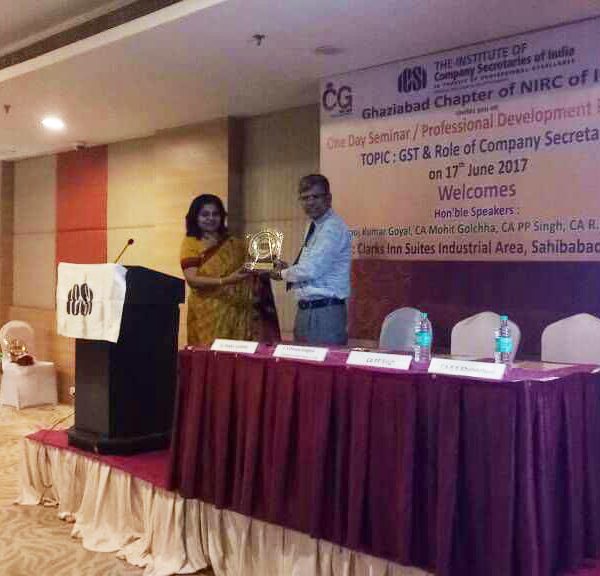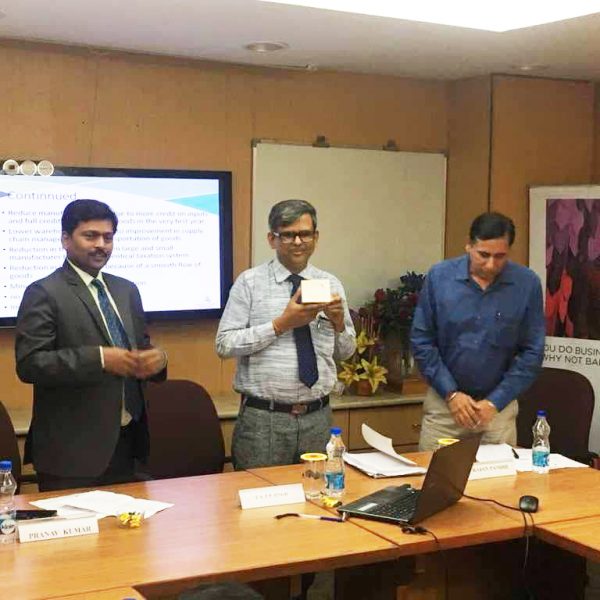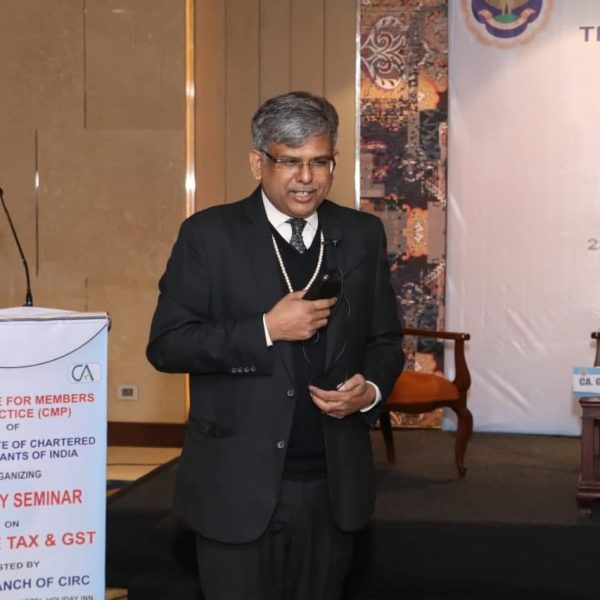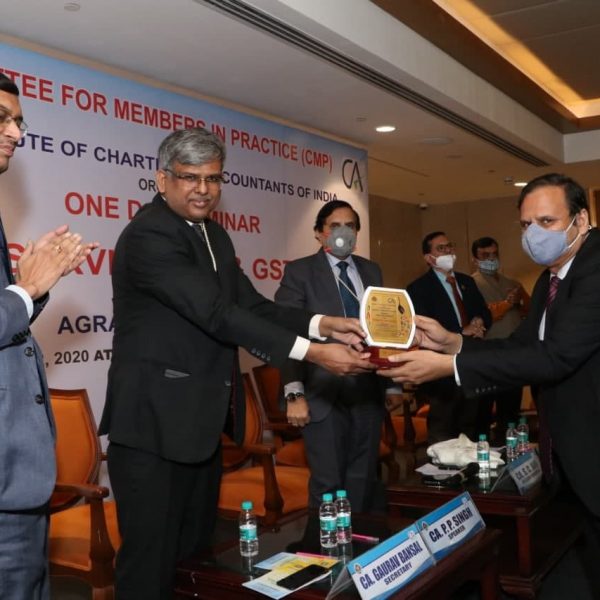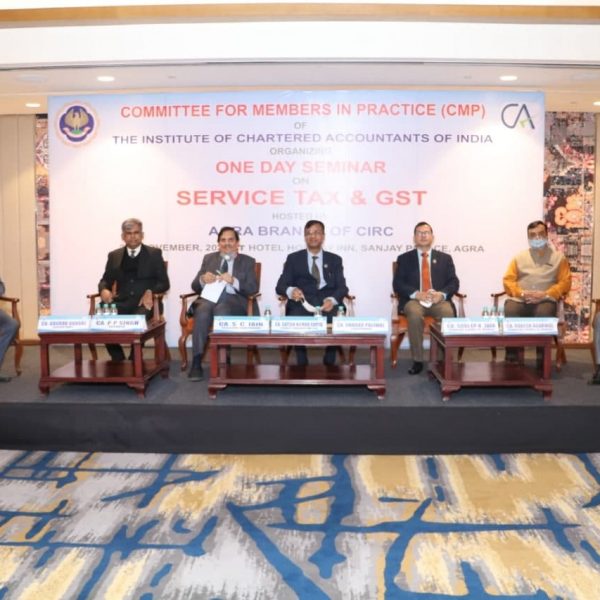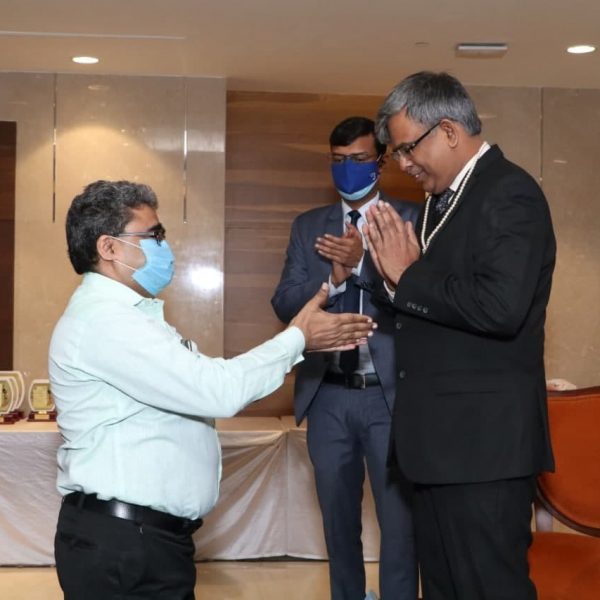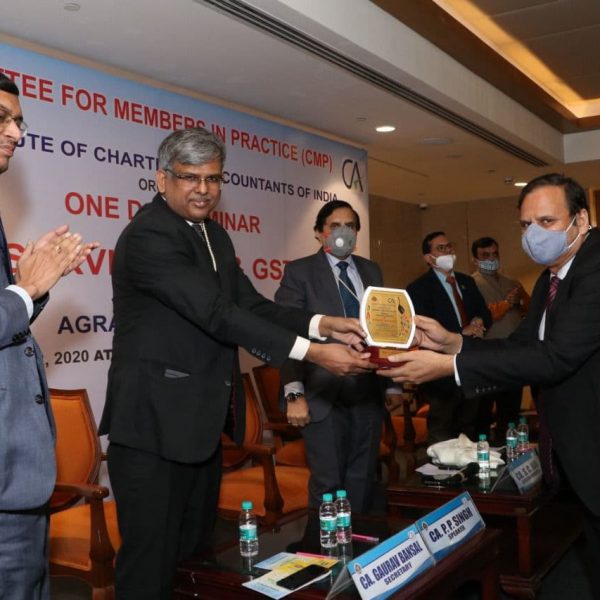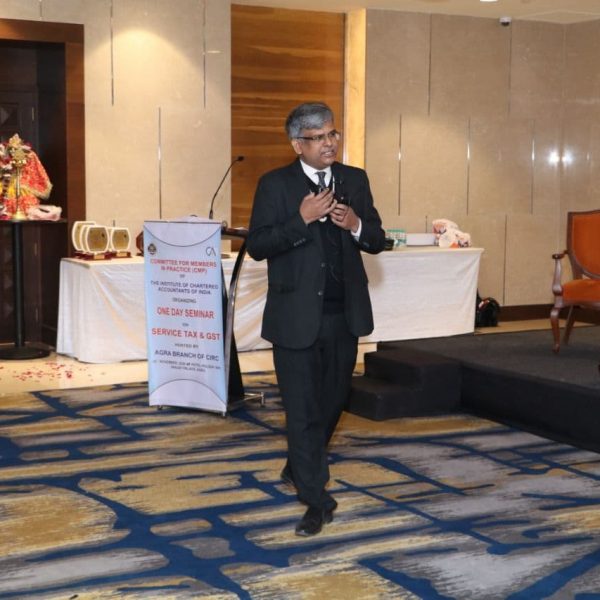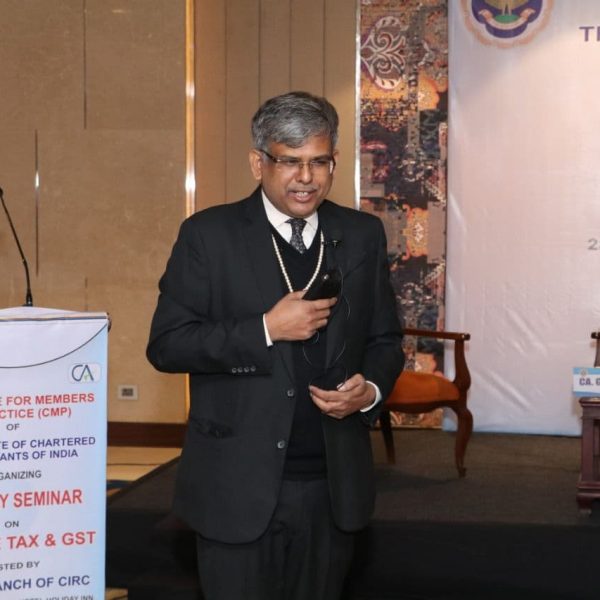Right to Life and personal liberty under Article 21 and different facets of this right along with Judicial Pronouncements.
A- 21.Protection of life and personal liberty : “No person shall be deprived of his life or personal liberty except according to procedure established by law.”
Essential parts of this Article are
- Right to life
- Right to Personal Liberty
- The procedure established by law
- Rights available to any Person may be a citizen or non-citizen also, even foreigners can claim Such rights except right to reside and Settle in India
- It is a direction to the state not to infringe on the right to life or Personal liberty of a person, but courts have taken a very liberal view and transformed the negative injunction to a positive mandate to the State to do all things which will make life worth living. Therefore this Article has both negative as well as positive dimensions.
- This article protects a person not only from executive action but also from legislative action after the interpretations in the Maneka Gandhi case decision.
- Deprivation does not mean only total loss of life, but any restriction imposed on liberty is a deprivation, we can approach court even when there is imminent threat to life.
- this Article does not put an absolute embargo on the deprivation of life or personal liberty but Such deprivation must be according to procedure established by law
- procedure established by law must be Just, fair and reasonable.
Relationship between different Articles such as 12,19,21
A-K- Gopalan Vs State of Madras (1950) (SC) : liberty is Qualified with the word Personal, therefore this article is limited to cover only liberty relating to or Concerning the person or body of individuals. It was held that A-19 has no application to laws depriving a person life or personal liberty enacted in A-21 and it was held that A-19 and A-21 dealt with different Subjects . Thus so long as preventive detention satisfies the requirement of A-22, it would not be required to meet the challenges of A-19 based on the assumption that each article deals with Specific matter. But the dissenting view of Justice Fazal Ali was that personal liberty must satisfy the requirement of A-19 & 21 both.
Kharak Singh Vs. state of UP (1963) (SC): Petitioner was accused of dacoity in 1941 but released under section 169 of CRPC as there was not sufficient evidence against him. Police often visited his house at odd hours, often waking him up from his sleep. He claimed That his Personal liberty infringed which can be done only under law and not under executive order under Uttar Pradesh Police Regulation. However, the court rejected the Pensioner claim that Shadowing of habitual Criminal infringing the right to Privacy / right to life with dignity because his right was not recognised as a fundamental right.
Term Personal liberty is a compendious(means comprehensive but concise) term and it includes all varieties of rights which go to make personal liberty of a person other than those covered by Article 19. Article 19 deals with particular species of freedom whereas Article 21 is residuary. The word Personal is used only to avoid overlapping between A-21 and 19. In this case, Police regulations authorizing a domiciliary visit of a Private house against bad character was challenged and held violative of Article 21. it is encroaching on personal liberty.
Malak singh Vs state of Punjab (1981) (SC): it is duty of the Police officers to keep vigilance over bad characters and habitual offenders for the Purpose of preventing Crime, therefore a person cannot complain against the inclusion of his name in Surveillance register and therefore Section 23 of the Punjab Police Act can be challenged only by person who does not belongs to above category. Such challenge as infringing the right to Privacy of a citizen as a fundamental rights to Personal liberty under Article 21 and freedom of movement under A-19(1) (d)
R.C.Cooper Vs. The Union of India (1970)(SC) also known as the Bank nationalization case where Petitioner was director and shareholders in various Banks Such as CBI, Bank of Baroda, Union Bank, Bank of India being taken over by the government. In this case, the doctrine of exclusiveness of each fundamental right under different articles was challenged. It was held that though each freedom has different dimensions yet there may be overlapping between different fundamental rights and therefore any argument to interpret personal liberty in A-21 to avoid overlapping between A-21 and A-19 (1) is not a valid argument.
Maneka Gandhi Vs. UOI (1978)(SC): in this case, the Supreme Court has explained the interrelation of A-19,21&14. In this case, the Court overruled the Judgment of A. K Gopalan case and held that A-21 is controlled by A-19 i. e it must satisfy the A-19 requirement. The court held that for a valid law interfering with personal liberty must satisfy a triple test (i) it must Prescribe a procedure,(li) it must satisfy Article 19, and (iii) it must not infringe Article 14.
The procedure established by law
- Deprivation of life or Personal liberty if any must be in accordance with the procedure established by law
- In the A-K-Gopalan case, it was argued that the word ‘law’ did not mean only enacted law but it meant the principle of natural Justice and expression procedure established by law is the same thing as the phrase due process of law in the American Constitution.
- In Maneka Gandhi Vs. UOI (1978)(SC) Case J. Bhagwati did not apply the concept of due process of law in the context of A-21 and stated that A-21 safeguards personal liberty against executive interference which is not supported by law and here law means enacted law or state law. But he departed from the A-K-Gopalan case wherein SC held that in A-21 law means a validly enacted law and not a law in the abstract or general Sense embodying the principle of natural Justice and held that the procedure must Conform to the principle of natural Justice. i.e. procedure must be Just, fair, and reasonable. Therefore, finally the procedure established by law in A-21 is almost due process of law of the American Constitution. U.S. Supreme Court has interpreted that in due process of law, not only enacted law but also law in the abstract.
- In this case, it must be fair, just, and reasonable, it would not be merely formality but Pragmatic and realistic to meet the given fact Situation. there must be a hearing and due application of mind [Ahmedabad Municipal Corp.Vs. Nawab Khan Gulab Khan AIR 1997 (SC)]
Meaning and Scope of Personal liberty:
Dicey has said right to personal liberty means a person’s right not to be subjected to Imprisonment, arrest or any other physical Coercion in any manner that does not admit of legal Justification. courts in India have held that Personal liberty in A-21 is of the widest amplitude. from the Maneka Gandhi Vs. UOI, Sunil Batra Vs. Delhi administration, and Hussainara Khatoon Vs. State of Bihar case SC has taken the view that while interpreting the provision of Part III of the constitution of India, it should be given the widest possible interpretation. A-21 has sprung up a whole lot of human rights Jurisprudence though not Specifically mentioned in A-21 due to wide interpretations by the Court. some important rights included in A-21 as decided by courts called implied fundamental Rights are discussed here under:
- Right to speedy trial Hussainara Khatoon Vs. State of Bihar (1980) (SC)
- Right to travel abroad Maneka Gandhi Vs UOI (1978)(SC)
- Right to dignity Maneka Gandhi Vs UOI (1978)(SC)/
- Right to Privacy Gobind Vs state of MP (1975) (SC)/(People’s Union for civil liberties) PUCL Vs. UOI (2000) ( SC)
- Right to Clean Environment M.C. Mehta Vs. UOI
- Right to livelihood Olga Tellis Vs. Bombay municipal corporation
- Right to Education Mohini Jain / Unni krishnan
- Right to marriage lata Singh.Vs State of UP (2006)(SC)
- Right against torture Sunil Batra Vs. Delhi Admn. (1980) (SC)
Right against bondage People’s Union for democratic right ( PUDR) Vs UOI (1982) (SC)/ Bandhua Mukti morcha.
Right to legal aid Sheela Barse Vs U O I (1986) (S C)
Right to food (People’s Union for Civil Liberties) PUCL Vs. UOI (2000) ( SC)
Note: The right to life does not include the right to die (Suicide) or the right to be killed (mercy killing or Euthanasia)
Right to dignity
In Maneka Gandhi’s case, it was held that the right to life ‘is not merely confined to physical existence but it includes Within its ambit the right to live With human dignity.
In Francis Coralie’s case, it was held that the right to life includes the right to live with human dignity and all that goes along with it, namely, bare necessities of life such as adequate nutrition, clothing and shelter, facilities for reading and writing, freely moving and mixing with fellow human beings.
Jolly Varghese Vs. Bank of Cochin (1980) (SC) Court held that imprisonment of a Poor Person for non-payment of debts amounted to a deprivation of his personal liberty without fair procedure and therefore violation of A-21. To be poor is no Crime Said by J. Krishna Iyer.
in People’s Union for democratic right ( PUDR) Vs UOI (1982) (SC) court held that non-payment of minimum wages to workers employed in various Asiad Projects in Delhi was a denial of their right to live with basic human dignity and violative of A-21. Rights and benefits to workers under various labour laws are to ensure basic human dignity to workmen and if they are deprived of these rights or benefits that would ‘be clearly a violation of A-21.
Vishakha Vs. state of Rajasthan (1997) (SC) Guideline issued by the supreme court to prevent Sexual harassment of working women at the workplace till Suitable Legislation because Such things is a violation of fundamental rights of Gender equality and Right to life and Liberty under A-14, 15& 21. not only that such Sexual harassment is violating A-19 (1)(g) also which gives freedom to Practice any profession or carry out any occupation if employer not providing a safe working environment. wormer has fundamental rights including gender equality, protection from Sexual harassment, and the right to work with dignity which are universally accepted basic human rights. Since there is no domestic law but the international Convention is on the elimination of all forms of gender discrimination against women, accordingly guidelines are issued by the Supreme Court .
Right To Privacy
- Rajagopal Vs. State Of T.N (1994) (SC) It was held that the right to privacy or right to be let alone is included in A-21 and a Citizen has a right to safeguard the Privacy of his own, his family, marriage, procreation ( reproduction), motherhood, childbearing and education among other matters. no one can Publish Such information Without consent, Otherwise violation of the right to Privacy.
PUCL Vs. U O I (1997) (SC) phone tapping of Politicians by CBI under section 5 of the Indian Telegraph Act 1985, which authorizes central and State govt. to resort to phone taking in Certain Circumstances was challenged. SC held that in the absence of a Just and fair Procedure for regulating the exercise of Power under section 5(2), it is not possible to Safeguard the rights of citizens guaranteed under A-19(1)(a) &21 of the constitution. The right to hold telephone conversations in privacy without interference can Certainly be claimed as the right to privacy, even though the right to Privacy is a too broad and moralistic concept to define it Judicially. Telephone Tapping thus infarcts (means disregard law) A-21 unless permitted under procedure established by law.
Note: criminal prosecution could be initiated based on the illegally collected evidence of phone tapping as it was held in R.M Malkani Vs. State of Maharashtra case where appellant was a Public official trying to acquire illegal indulgence q Rs 15000 from a doctor as a bribe to incriminate a Case of the negligence of doctor but doctor was not ready to give bribe. this was based on US Supreme Court Judgment in the case of Roy Olmstead Vs. United States of America which was reversed later on by the US SC court.
Justice K.S Puttaswamy & Anr Vs. UOI & Ors.
Privacy Safeguards individual autonomy and recognizes the ability of an individual to control vital aspects of his or her life. Personal Choices prevailing in a way of life are essential to Privacy. Privacy safeguards heterogeneity and recognizes the plurality and diversity of our culture. Privacy attaches to the Person since it is an essential facet of the dignity of human beings.
Right to travel abroad
Satwant singh Vs. Asst. Passport officer, New Delhi (1967) (SC) it was held that the right to leave India or travel abroad is part of personal Liberty which could be restricted only by the authority of law. In this case, the appellant was frequently traveling abroad for business purposes, but govt. has ordered for the surrender of his Passport. The contention of the Union govt. was that Passport is a political document to which no one has a legal right, much less a constitutional right. Cours rejected this view and held that personal liberty in A-21 takes in the right of locomotion – to go anywhere when one pleases and the right to travel abroad is included in it.
In Maneka Gandhi Vs UOI case also the court held that the right to travel abroad is included in personal liberty in A-21.
Right to food:
PUCL Vs. UOI 2000) (SC) court held that People who are starving because of their inability to purchase food grains have the right to get food under A -21, and therefore State Should provide the same free of cost out of surplus Stock lying with the state. In such a situation people like those who are aged, infirm, disabled, destitute (women & children), pregnant, and lactating(producing or secreting milk) women must be provided food free of cost by the state.
Right to marriage
Lata . Singh Vs. State of U.P (2006) (SC) it was held by the Court that the right to life includes the right to marriage. A major boy or girl undergoing inter-caste or inter-religious marriage is to be protected from harassment, threats, and acts of violence. Stern action should be taken against a person who threatens or harasses someone in such types of cases.
Mr.x Vs Hospital Z Vs. (1999)(SC)/(2003) The right to get married is an essential element of the right to Privacy but this right is not absolute. Marriage is a legally permissible Sacred union of two healthy bodies of opposite Sexes. If a person is suffering from venereal diseases( sexually transmitted disease/ gupt rog/yon rog) in a Communicable form, it will be open to other partners in marriage to Seek divorce. moreover, So long as Such a person is not cured of such disease, the right to marry Cannot be enforced through a Court of law and during this period such right remains suspended. Further, it’s open for the hospital or doctor to reveal information about AIDs status to a person related to a girl whom he intended to marry and she had a right to know about the HIV-positive status of the appellant. it is because the state has to save the life of the other party.
Right to Livelihood / Right to Work
Olga Tellis Vs. Bombay Municipal Corporation (SC)(1986) also known as pavement ( means roadside footpath) dweller’s Case. In this case, Petitioner has challenged the validity of the Provision of Bombay Municipal Corporation Act 1988 which empowers BMC to remove their huts from pavements and public places on the ground that removal amounted to depriving them of their right to livelihood and hence violating A-21. The court held that world life in A-21 includes the right to livelihood because no person can live without a means of livelihood. The court also held that the right to livelihood can be curbed or curtailed by following Just and Fair Procedure.
Sodan Singh Vs. Delhi Municipal Committee (SC) (1989) court held that A-21 was not attracted in the Case of trade and business. The petitioner was doing business on the pavement of roads in Delhi and was rightly refused by Delhi municipal authorities to carry on business.
Delhi Development Horticulture Employees Union Vs. Delhi Admn. (1992)(SC)
A-21 & A-41 in this case it was contended that right to life includes the right to livelihood and thereby right to work. petitioners who were employed on daily wages in Jawahar rozgar yojana filed petition for absorption as regular employees. court held that although broadly interpreted and as a necessary logical corollary right to life would include right to livelihood and as a necessary logical corollary the right to life would include right do livelihood and So right to work but his County so far has not found feasible to incorporate right to livelihood as a fundamental right because country So far does not attained the capacity to guarantee it, for this gigantic resources needed. Accordingly it has been placed in A-41 as a directive principle where State to make effective provision for securing the Same within limits of economic capacity and development.
D.K. yadav Vs.JMA industries (1993) (SC)
Right to life includes right to livelihood and therefore right to work, accordingly before terminating the services of an employee or workmen fairplay requires reasonable Opportunity Should be given to the employee to explain his case. Procedure prescribed for depriving a person of his Livelihood must meet the requirement of A-21. i. the procedure must be Just, right, fair and reasonable otherwise the glorious content of dignity of a person would be reduced to animal existence.
Right to shelter
Chameli singh vs. state of UP (1996) ( S C) where it was decided that the right to shelter is a fundamental right under A-21. Right to live guaranteed in any civilized Society includes the right to food, water, decent environment, education, medical care and Shelter. These are basic minimum human rights known to any Civilized Society.
Ahmedabad Municipal Corp. Vs Nawab Khan Gulab khan (1997) (SC) following olga telli case , Hon’ble Supreme court held that while no one has right to encroach upon Public footpath, Pavements or road, the State / Municipal corporation has constitutional duty as well as Statutory duty to provide residential accommodation to the poor, indigent weaker Section of the Society by utilizing excess urban vacant land available under the urban ceiling Act . But in all cases of Ejectment of the encroachers, it is not obligatory on the part of the State/ corporation to provide alternate accommodation. no absolute principle can be laid down in this regard and it would depend upon the facts of each case. Due to the lack of facilities and opportunities, the right to residence and settlement is an allusion to the rural and urban poor. Directive Principles in A-46 charge the state to distribute its largess (generosity) to the weaker section of the Society to make Socio-economic Justice a reality, meaningful and fruitful So as to make life living with dignity and equality of status.
Right to speedy Trial: In the last decades, the Judiciary has played a very active role and worked as a watchdog of an undertrial, especially poor, but avoided laying down any straight Jacket formula to be applied in all cases of delayed trial. it is neither advisable nor practicable to fix any time limit for the trial of offences because delays occur due to many reasons such as the nature of the offence, number of accused and witnesses, and workload.
Right to clean environment : The Supreme Court in several Cases interpreted the right to life and personal liberty to include the right to a wholesome ( healthy) environment. Several High Courts also held that environmental degradation violates fundamental rights to life.
M.C. Mehta v/s Union Of India AIR 1988 SC 1037;(1987) 4 SCC 463: Ganga Pollution Case. In this case, leather industries in Kanpur and Kanpur Municipalities were polluting the river Ganga by disposing of Pollutants effluents in Ganga, major Points were:
- The petitioner requested the court to restrain the respondents from releasing polluting effluents into the Ganga River until they establish treatment plants to address pollution.
- The court highlighted the importance of protecting the environment as enshrined in the Indian Constitution, specifically mentioning Article 48-A ( Protection and improvement of environments and Safeguarding of forests and Wildlife) and Article 51-A related to fundamental duties of citizens of India, among other things, includes to protect and improve the natural environment including forests, Lake, rivers and wildlife and compassion for living Creature.
- The court recognised the significance of the Water (Prevention and Control of Pollution) Act, 1974, which aims to prevent and control pollution and maintain water quality.
- Section 24 of the said Act prohibits the disposal of polluting matter into streams, including watercourses.
- The court ordered the tanneries to establish primary or secondary treatment plants as a minimum requirement.
- The financial capacity of the tanneries was deemed irrelevant in the obligation to establish treatment plants.
- The court criticised the State Board for not taking effective steps to prevent effluent discharge into the Ganga River and the Central Government for not addressing the public nuisance caused by the tanneries.
- The court invoked Article 51-A (g) of the Indian Constitution, which imposes a fundamental duty to protect and improve the natural environment.
- The court directed the Central Government to mandate environmental education in all educational institutions, allocate free textbooks, and provide training for teachers on the subject throughout India.
- The education should focus on the importance of cleanliness for a healthy body and mind and cover various aspects of environmental protection.
M.C.Mehta v/s UOI: Oleum Gas Leak Case
Facts of the case: On December 4th, 1985, a significant oleum gas leak from one of Shriram’s facilities occurred. Both the workers and members of the general public outside were physically impacted by the leak. In addition, one attorney working in the Tis Hazari Court passed away from oleum gas inhalation. petitioner and the Delhi Bar Association acknowledged the occurrence. Two days later, on December 6, a small amount of oleum gas leaked from a pipe junction again.
Issues:
What is the scope of Article 32 of the Constitution?
Whether the principle of strict liability should be followed?
How to calculate liability and compensation amounts.
Whether such harmful substances be allowed to be kept on the premises?
Law:
Article 21, Protection of Life and Personal Liberty
Article 32, Right to a Remedy
Article 12, defines the term ‘State’ for the Fundamental Rights in the Constitution.
Analysis:
Justice. Bhagwati expressed grave worries for the safety of Delhi residents from hazardous chemical leaks and claimed that eliminating toxic and dangerous factories was not an option because they continue to improve people’s quality of life. Therefore, even destructive industries must be formed since they are essential to the growth of the economy and society.
He thought that the only way to lessen the risk or harm to the general public was to take all appropriate measures to put these industries in areas where the general population would be least exposed and the security needs would be addressed.
The court ruled that the hazardous industries could not be allowed to any of exceptions to the norm outlined in Rylands v. Fletcher. Total accountability was approved by the Court. The leakage was produced by mechanical and human faults, excluding the possibilities of a 3rd party’s action or a natural disaster, according to the court, which determined that the concept of absolute liability is relevant in this case.
The act of a third party or a natural calamity was the only exception that applied in this situation. An industry is required to make sure that no one is harmed when engaging in risky operations that could endanger the health and safety of adjacent workers and residents.
The court made the point that new strategies and techniques for upholding basic rights may be established under Article 32 and the Supreme Court in addition to providing direction to preventive actions but also to remedial efforts where rights are already being violated. further right to live contains the rights to claim Compensation for victims of Pollution hazard.
Subhash kumar Us State of Bihar (1991) (SC)
count held twas right to live include right enjoyment q pollution free water and air for full enjoyment of life. of anything endanger or impair that Quality of life in derogation of laws, a citizen has right to have recourse A-32.
Murli S. Deora Vs. UOI (2001) (SC) effect of smoking on others -realizing the gravity of the Situation and Considering the adverse effect of Smoking on smokers and Passive smokers, the Court directed and Prohibited smoking in Public places and issued discretion to the Union of India, state government and UTs to take effective steps to ensure Prohibiting smoking in public places.
Right to Education
earlier there was no specific Article but now A-21A has been added by the Constuhhon 86th Amendment Act 2002 based on the law commission report and standing committee of Parliament recommendation. As per A-21A, The State shall provide free and compulsory education to all children of the age of six to fourteen years in such manner as the State may, by law, determine. The law is “The Right of Children to Free and Compulsory Education Act, 2009”
Mohini Jain v. State of Karnataka (1992) (Supreme Court of India) case, when the Government of Karnataka issued a notification that permitted the private medical colleges in the State of Karnataka to charge exorbitant tuition fees from the students admitted other than the “Government seat quota”. Miss Mohini Jain, a medical aspirant student filed a petition in Supreme Court challenging this notification. The apex Court raised an important question that “whether the right to education is guaranteed to the Indian citizen under the Constitution of India?”
The Supreme Court of India observed that the mention of “life and personal liberty” in Article 21 of the Constitution automatically implies some other rights, those are necessary for the full development of the personality, though they are not enumerated in Part III of the Constitution. Education is one such factor responsible for the overall development of an individual and therefore, the right to education is integrated in Article 21 of the Constitution.
Further the court also observed that capitation fee ( charging amount beyond what is permitted by law i.e excess of Prescribed fee ) makes the availability Of education beyond the reach of Poor. Education in india has never been a Commodity for sale.
Not only Compulsory but Quality education: The right of a child should not be restricted only to free and compulsory education, but should be extended to have quality education without any discrimination on the ground of their economic, social and cultural background. State of Tamil Nadu v. K. Shyam Sunder, AIR 2011 SC 3470, (2011) 8 SCC 737.
The Right of Children to Free and Compulsory Education Act, 2009 and in particular sections 12(1) (c) and 18(3) infringes the fundamental freedom guaranteed to unaided minority Schools under Article 30(1) and, consequently, applying principle of severability, the said 2009 Act shall not apply to such schools. Society for Un-aided Private Schools of Rajasthan v. Union of India, (2012) 6 SCC 1, 2012 (4) SCALE 272.
Capitation fee: Unni Krishnan vs State of Andhra Pradesh, certain private professional educational institutions challenged the constitutionality of state laws that regulated capitation fees charged by such institutions. The Supreme Court made the following key rulings:
The Supreme Court in the case of Unni Krishnan Vs. the State of Andhra Pradesh (1993) CSC) held that the right to basic education is implicit in the fundamental right to life (Article 21) when considered in conjunction with the directive principle on education (Article 41).
It was emphasized that the parameters of the right to education must be understood in the context of the Directive Principles of State Policy, particularly Article 45, which mandates that the state should strive to provide free and compulsory education for all children under the age of 14 within ten years from the commencement of the Constitution.
The Court in this case ruled that there is no fundamental right to education for a professional degree derived from Article 21. However, it acknowledged that after 44 years since the Constitution’s enactment, the non-justiciable right to education of children under 14 had become enforceable under the law. Beyond the age of 14 years, the right to education is subject to the state’s economic capacity and development, as specified in Article 41.
Quoting Article 13 of the International Covenant on Economic, Social and Cultural Rights, the Court has stated that the state’s obligation to provide higher education requires it to take steps, to the extent of its available resources, to progressively realize the right to education through appropriate means for all.
Court also held that admission in Private medical and Engineering Colleges Shall be based on merit but 50% seats be filled by Candidates prepared to Pay higher Fee.
TMA Pai Foundation Vs. State of Karnataka (2003) (SC): Dr. T.M.A Pai, the founder of ‘The Academy of General Education,’ established the institution under the Societies Registration Act, 1860, initially located in Manipal within the state of Madras. Subsequently, the region became part of the state of Karnataka following state reorganisation. The governor enacted the Karnataka Educational Institutions Ordinance, 1984 and the state government’s directive dated 19.07.1984 imposed restrictions on the total intake of the college and designated 40% of the seats as government seats. During the pendency of the petition, the Karnataka Educational Institutions (Prohibition of Capitation Fee) Act, 1984, was enacted, specifying capitation and tuition fees for private unaided educational institutions not receiving government assistance aiming to curb the unethical collection of excessive fees.
In 2003, an 11 Judge Bench of the Supreme Court decided the scope of right of minorities to establish and administer educational institutions of their choice under Article 30(1) read with Article 29(2) of the Constitution. The Supreme Court recognised the autonomy of private educational institutions under Article 19(1)(g) of the Indian Constitution, allowing them to operate without excessive governmental interference/ autonomy but Subject to reasonable regulations designed to uphold transparency, fairness and accountability. This case has overruled the Judgment of unni krishnan order Partly to the extent that scheme relating to admission and fixing the were not correct and to that extent only over ruled. In this case the court has laid down guidelines:
Admission Process Regulation: The state government retains the authority to regulate the admission process, emphasising fairness, transparency and merit-based criteria.
Fee Fixation: The fixation of fees falls under the purview of an appropriate fee-fixation committee, with a mandate for reasonableness to prevent profiteering.
Staff Selection: The process of selecting teaching and non-teaching staff should adhere to principles of fairness and be based on merit.
Institutional Administration: The right to administer the institution, including the formulation of rules and regulations, is protected, subject to reasonable regulations to maintain overall accountability and fairness.
Right to medical aid and health
Parmanand Katara Vs UOI (1989) (SC) this is a landmark judgment pronounced by the Supreme Court which made it obligatory for a doctor or a hospital both public and private to provide immediate medical aid to a victim of a road accident. Supreme Court took a positive step in this direction by holding that under Article 21 of the Constitution, right to medical aid is an integral part of right to life and it is an obligation on the State to preserve life by extending required medical assistance without legal formalities to be complied by Police. It is the obligation of those who are in charge of the health of the community to preserve life so that innocent may be protected and gunity may be Punished. No law or state action can intervene or delay the discharge of duty by a medical professional.
Consumer Education. & Research Centre v. Union of India (1995) SC
Right to health and medical care is a fundamental right under A-21 and it is essential for making the life of workmen meaningful, Purposeful with dignity of person. Right to life include protection of health and Strength of workers. The expression life includes right to livelihood, better standard of life, hygienic conditions in workplace and Leisure and traditional and cultural heritage of a person. Court issued guidelines to be followed by the asbestos industry to make health insurance for workers, Compensation to workers suffering from occupational health hazard, maintenance of health record of every workmen .
Right to die/ euthanasia (mercy killing)
- Rathinam Vs. Union of india (1994) (SC) has held that a person has a right to die and declared Section 309 of IPC unconstitutional, which is related to attempt to commit Suicide a penal offence. Right to Live in A-21 includes the right not to live i.e right to die or terminate life. A person can’t be compelled or forced to enjoy the right to life to his detriment, disadvantages or disliking. Achef Suicide can’t be said to be against religion, morality or Public policy and attempted Suicide has no baneful effect on the Society.
Gian Kaur Vs. state of Punjab (1996) (SC) 5 Judges Constitution bench has overruled the Judgment of P. Rathinam case order held that right to life under A-21 does not include right to die or right to be killed. Right to die is inherently inconsistent with the right to life and also held that Section 309 of IPC is not violating A-21, rather the Court also held that legislature should enact Suitable law to provide adequate Safeguard to prevent any possible abuse. Any aspect of life which dignify may be read within A-21 but not to extinguish life. Right to life is a natural right embodied in A-21 but Suicide is unnatural termination or extinction of life and incompatible with the Concept of right to life. Right to life is the right to live with dignity till we end Natural life.
Note: there is distinction between attempt of Suicide and action of Some others to bring an end of life of a third person under protagonists of euthanasia view.
violation of Personal liberty by Private individual: not within the Purview of A-21 and in such a Situation remedy was to be sought under the ordinary law and not under A-21. vidya verna Vs. Shiv Narain (1956) (SC)

